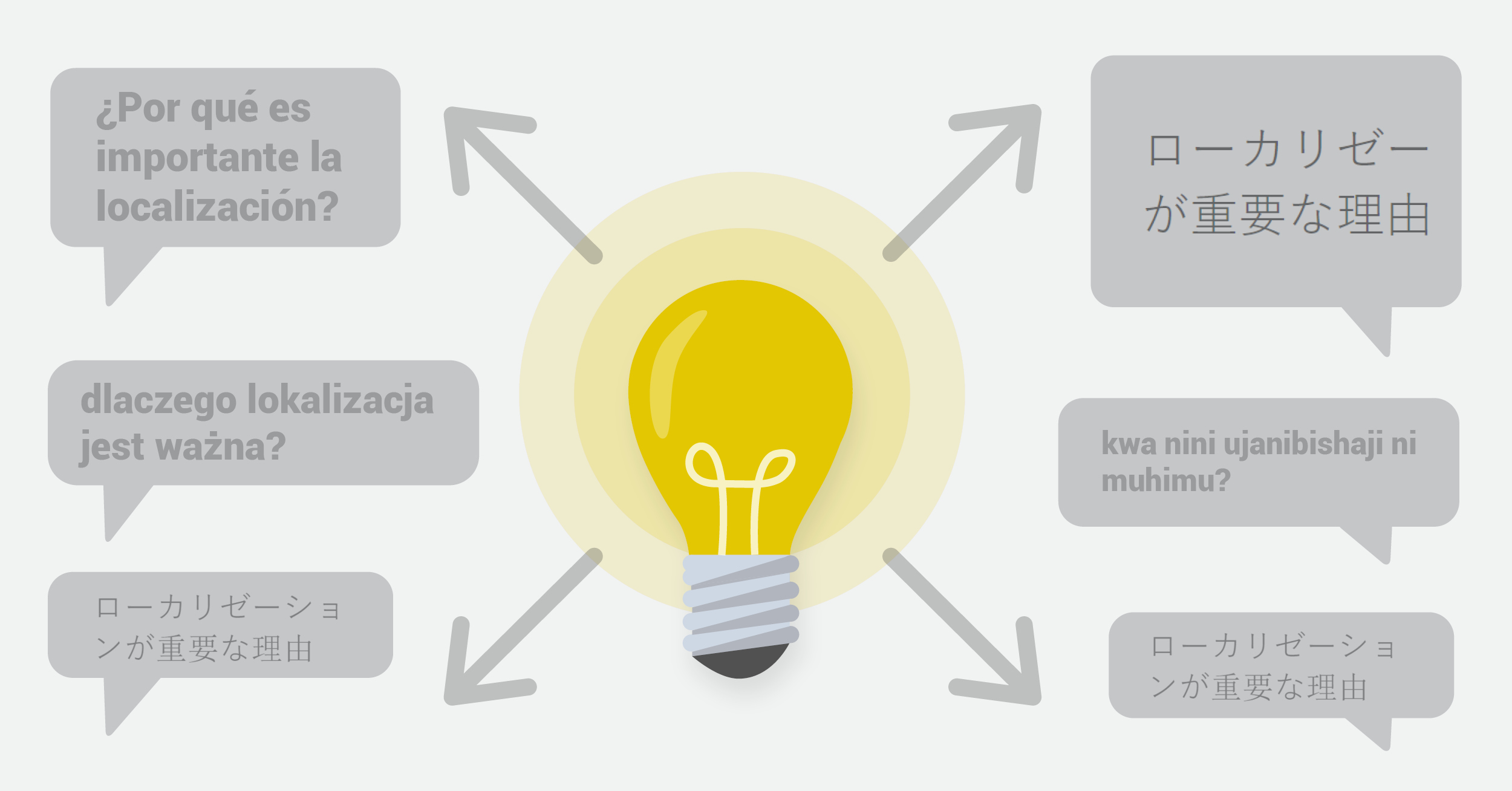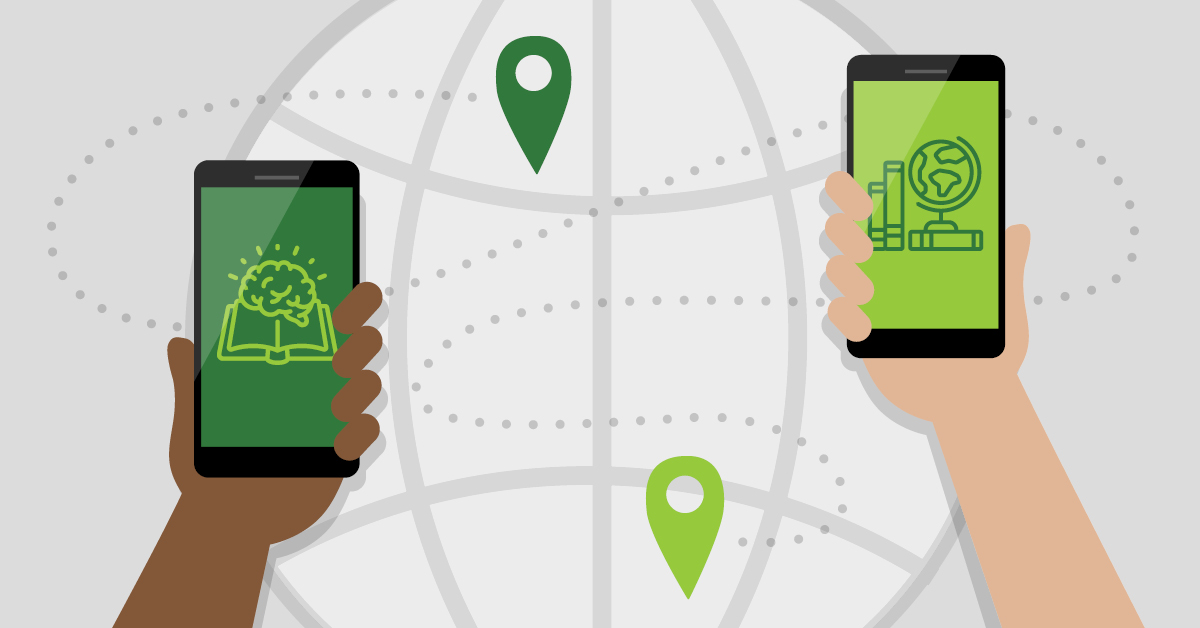Today’s workforce is increasingly global. Even the smallest startups are likely to rely on a talent marketplace that includes countries outside those of the entrepreneur themselves. Every industry and company size is learning the value of being able to tap into the knowledge and skills of remote workers and teams. Whether your business employs the occasional freelancer to bring in special skills for a specific one-off project, or invests in entire departments based offshore, being able to communicate clearly and quickly is key to success.

Why is localization important?
They say “all politics is local,” meaning that we find relevance in the familiar, and the same applies to learning. We learn more quickly, more efficiently, and more comprehensively when new knowledge is communicated familiarly. In other words, our ability to absorb new information is highly contextual, and knowledge can and should be “localized” for best results.
This doesn’t mean that the fundamental premises behind core concepts in your business somehow change between, say, North America and countries in Eurasia. However, the way we teach those concepts can benefit from customization for the intended audience. The more relevant we make knowledge to each unique set of end-users, the more likely we are to see successful learner outcomes.
What does this mean in a practical context? Delivering local learning initiatives is something that must be planned, tested, and refined until rollouts can happen smoothly and simultaneously across your organization’s geographical breadth, without delay or impaired comprehension.
Digital media as the easiest path to global learning
Digital media can be a starting point for your local learning plan. You can readily leverage digital and cloud-based learning processes to disseminate, test, and gather feedback on the knowledge that has been adapted to several different presentations based on geographical and cultural specifications.
Start with general focus knowledge, then expand

Build modular content
By building your local learning initiative starting with the basics, you create a solid foundation to which you can add segments as slowly or as quickly as circumstances dictate. By breaking down concepts and new knowledge into bite-sized modules, you make it easier to retool each module for new local audiences. Over time, global learning will be fully integrated into your knowledge base, and every new module will automatically go through the localizing process.
Get local input
There’s nothing more annoying to someone from another geographical region or culture than trying to absorb knowledge packaged by someone who has misconceptions about them or their lived experience. Too many global learning initiatives are oversimplified versions of the primary teaching tools, when simplification isn’t what is required but rather the ability to communicate in ways that are relevant to the audience.
By obtaining local input, you can create materials that educate and inform without condescending or being reductive. A/B test engagement across geographic regions is also vital to refining your local learning efforts for maximum value.
Benefits of local learning
 and deliver learning to your teams across the globe, the more quickly implementation can occur across your entire company.
and deliver learning to your teams across the globe, the more quickly implementation can occur across your entire company.Do you want a breakthrough made by a research team in one country to be communicated to a development crew in another, and the solution rolled out for deployment across multiple continents simultaneously?
It’s entirely possible – but only if you have committed to and invested in local learning on a global scale. With SkillUp, even the smallest companies can now leverage this powerful method to achieve their goals more effectively and quickly. Contact us for more information on how we can help you deploy local learning initiatives today.


